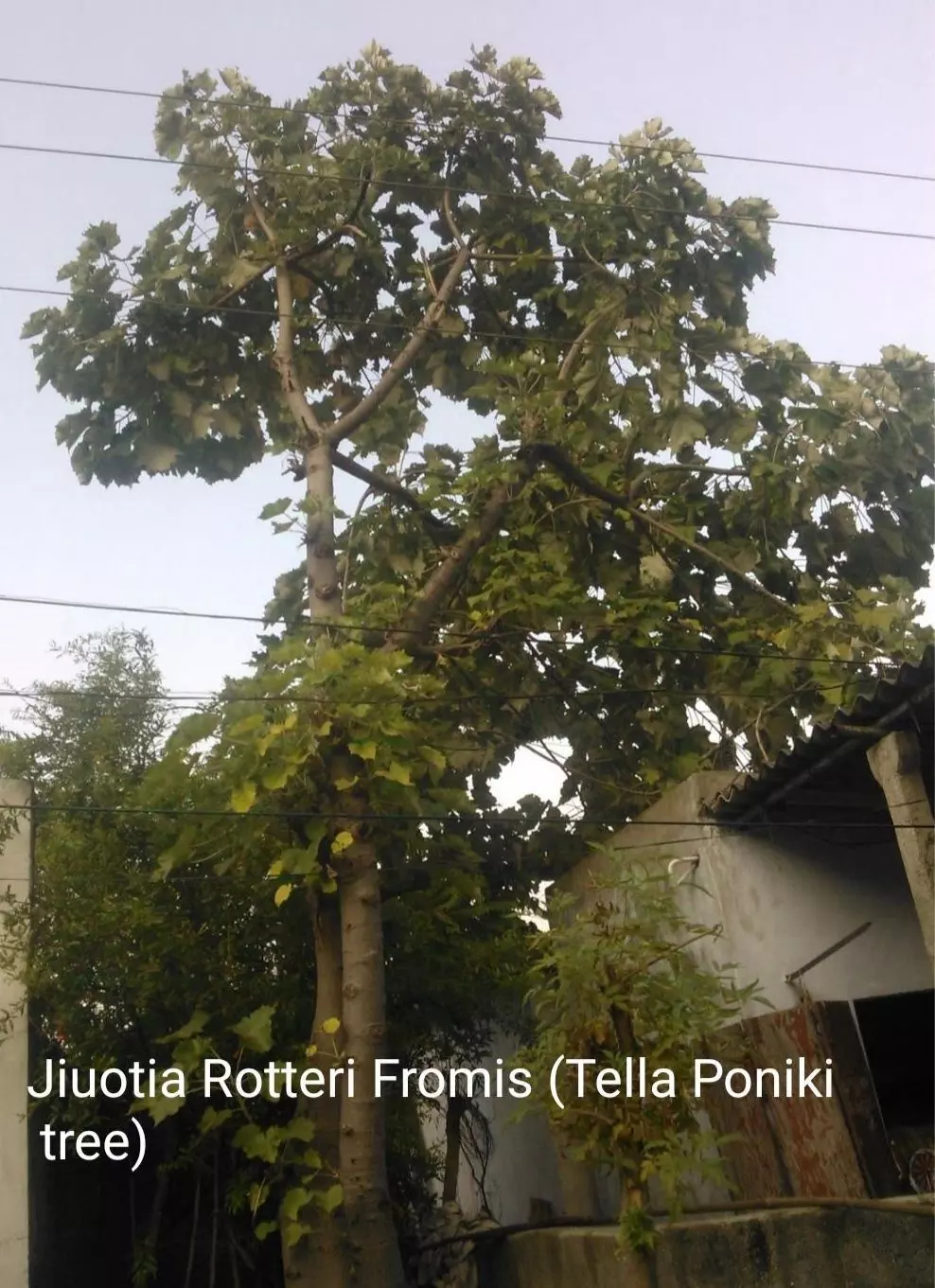Telangana’s Poniki tree gets a lifeline with germination breakthrough from Mulugu researchers
Mulugu scientists develop new germination method to revive Telangana’s Poniki tree population
By - Kedar Nadella |
Hyderabad: Do you know about Nirmal toys, primarily made from Telangana tree Ponki wood (also known as poniki chekka), a soft, locally sourced wood that is lightweight and flexible?
The traditional art pieces made from wood hold the Geographical Indication (GI) tag of Nirmal.
The tree from which the wood is sourced is called Poniki (Givotia rottleriformis). It is renowned for its soft and lightweight wood, ideal for crafting toys, figurines and lacquered artefacts. Givotia rottleriformis is the main wood used for Nirmal toys and is sourced from forests near the Nirmal town in Telangana. Its softness makes it ideal for carving intricate shapes.
Cultivation troubles
However, its natural populations have sharply declined due to poor regeneration, seed dormancy and habitat degradation, making the species increasingly difficult to cultivate.
There is good news, though. In a major scientific breakthrough, researchers at the Forest College and Research Institute (FCRI), Mulugu, have successfully developed an improved germination technique for Poniki.
The innovation promises to revive dwindling populations of the species and support the livelihoods of hundreds of artisan families.
What did the researchers reveal?
The breakthrough was achieved by Maloth Mounika, MSc, research scholar, under the guidance of Dr Reeja Sundaram, Assistant Professor, Department of Tree Breeding and Improvement at FCRI.
Their newly developed protocol, pending patent approval, has successfully enhanced seed germination rates to 75–80 per cent, overcoming long-standing challenges posed by the tree’s hard, water-impermeable seed coat and prolonged dormancy.
Speaking about the achievement, the Dean of FCRI, V Krishna, IFS, stated, “This achievement reflects FCRI’s commitment to blending scientific innovation with cultural preservation for socio-economic development of forest-based industries and communities. Reviving Givotia rottleriformis is not just about protecting a native tree species; it is about sustaining the livelihoods of artisan communities and preserving Telangana’s unique heritage. We are proud that our young researchers are contributing solutions of national importance.”
Medicinal functions of Poniki wood
Givotia rottleriformis is native to dry deciduous forests of Telangana, Andhra Pradesh, Karnataka, Tamil Nadu, Maharashtra, Kerala and Sri Lanka, where it thrives in rocky and degraded landscapes. Beyond its utility in woodcraft, the species is valued in traditional medicine for its anti-psoriatic, anti-inflammatory and antimicrobial properties.
This pioneering germination method developed at FCRI opens new pathways for large-scale plantation, ecological restoration, and conservation of craft-based livelihoods. The institution plans to transfer this technology to forest departments and artisan clusters to ensure a sustainable supply of raw material for the well-known Nirmal toy industry.